'China is a hard rock. It won't be beaten by virus'
- Published
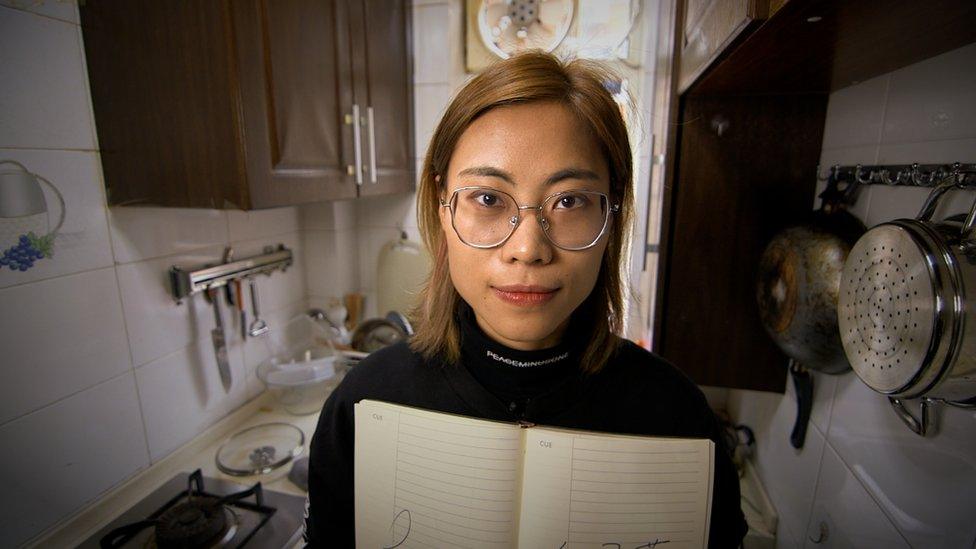
Pan Run Ping is happy to have found work again in a restaurant.
A year on from the beginning of the outbreak the Chinese economy has bounced back. It may be a recovery led by debt and the spending of China's rich but nonetheless it's good news for Pan Run Ping.
She is back in her tiny Shanghai apartment. She's back at work too, in a bar and restaurant. But she's worried. She's worried about Chinese being targeted abroad.
"I don't want to see any harassment towards Chinese abroad," she told me as we talked in her kitchen. "We are normal and healthy. They didn't do anything wrong," she said.
Pan is one of a handful of young, working Chinese we spoke to as the country approaches its second year of Covid-19. At 27 much of Pan's trade is selling craft beer.
For Zhou Si Yi, who is a year older, much of her trade is crafting leather, in her studio in the corner of her seventh floor apartment. Zhou told me she is very patriotic. Her mum is a member of the ruling Communist Party.
China is "like a hard rock. It won't be beaten by a virus," she said as we chatted at the desk where she makes wallets and handbags. But she thinks China made mistakes by allowing it to spread. "Of course China should feel sorry about it," she added.
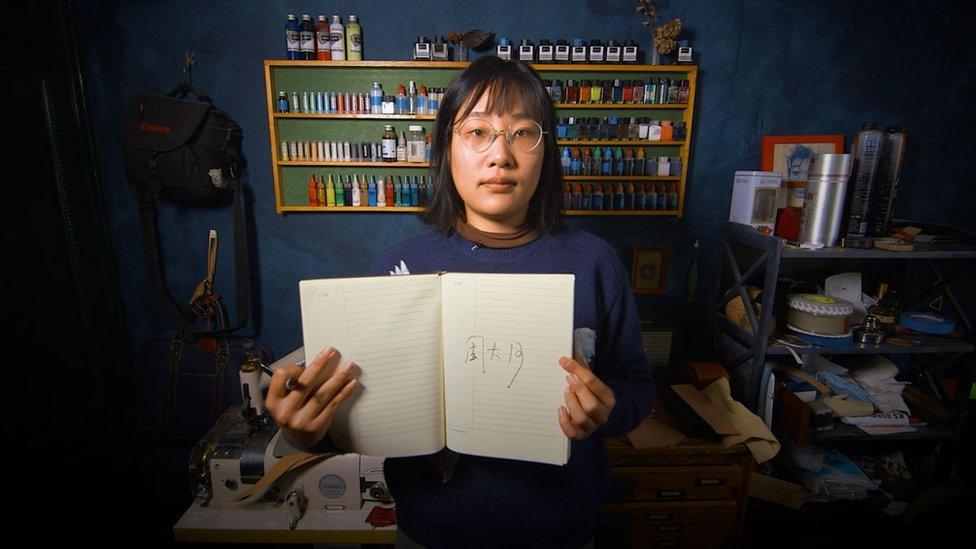
Zhou Si Yi makes custom-made bags in her apartment
There was much scepticism about China's official virus case numbers early on, but it controlled the virus quickly. Extreme lockdowns in some parts were coupled with sophisticated surveillance and mass testing on an unrivalled scale.
Tracking and tracing cases and close contacts was key. All that allowed for a quick economic recovery.
That's been really good news for Zhou. People are ordering her custom-made bags. People are buying the cars made in the factory owned by the state-run company where her husband works.
She thinks the "secret" behind this is the way China is governed. "The secret is that we only have one leader, which is our Party Secretary," she said. "Everyone will listen to the leadership."
She feels contrite. China has helped other countries and tried "to make up for our mistakes".
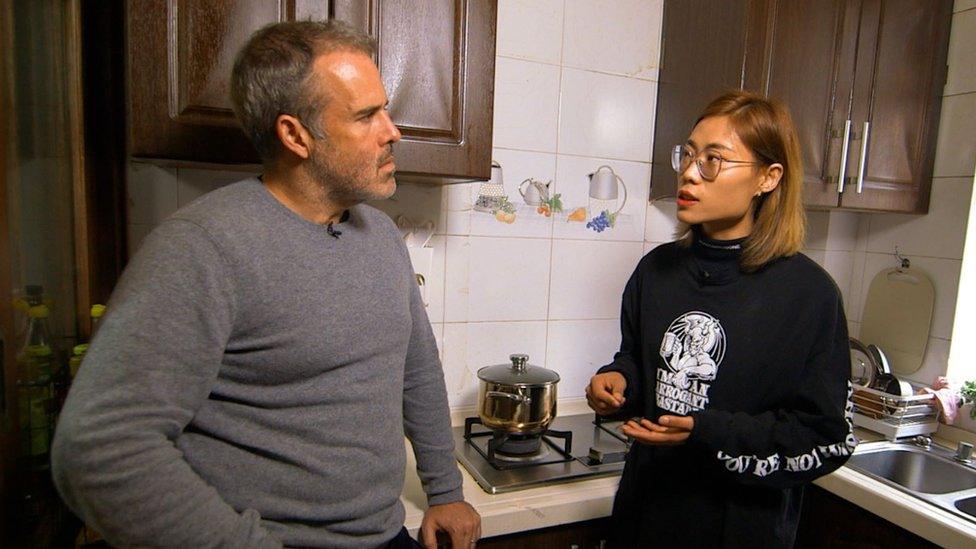
The BBC's Robin Brant talking to Pan Run Ping
Feeling sorry, mistakes made; it's unusual to hear that language from someone here with Party connections. But she doesn't think the leaders, or even President Xi Jinping, can say sorry to the world.
"As normal people we felt sorry for it but maybe as leaders of the country they can't say that, due to some reasons."
China's economic recovery was quick and, as the official government figures would suggest, a sign of impressive resilience. But it's been lopsided according to some observers.
Prof Michael Pettis from Peking University told me: "China has had a very lopsided recovery.
"Almost all of the recovery has been on the supply side of the economy, the production side of the economy. On the demand side of the economy it's been extremely weak."
Very simply put, because China turned first to one of the tactics it knows best to stimulate a recovery - debt fuelled borrowing to finance infrastructure.
Prof Pettis, who specialises in finance, thinks it ended up with people making a lot of stuff but not buying a lot of stuff. Those who were buying tended to be buying new cars, or getting on planes.
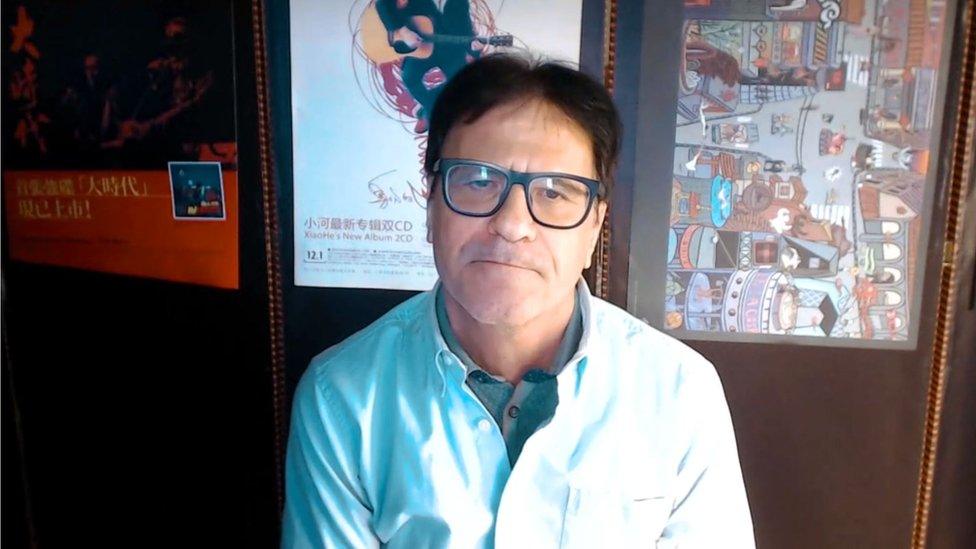
Prof Michael Pettis from Peking University says China's recovery has been lopsided
Bar worker Pan can attest to that. The people who come to her high-end bar are spending like before, but she is doing the opposite.
Instead, she is saving more. "It is really difficult to find a job this year," she said. "Migrant workers like us are really having a hard time."
She is more than a thousand miles from her home in the southern province of Yunnan. Pan is one of China's hundreds of millions who left for the big cities and better jobs. But people like her have been hit hard by the economic shutdown and subsequent slump.
Some of her friends went back home and haven't returned to Shanghai. They took more stable government jobs or jobs with state-owned companies.
"It's very different if I go back home to find a job. I would prefer government-related work which is more secure and leads to a stable life." She's staying in Shanghai though. She wants to run her own bar.
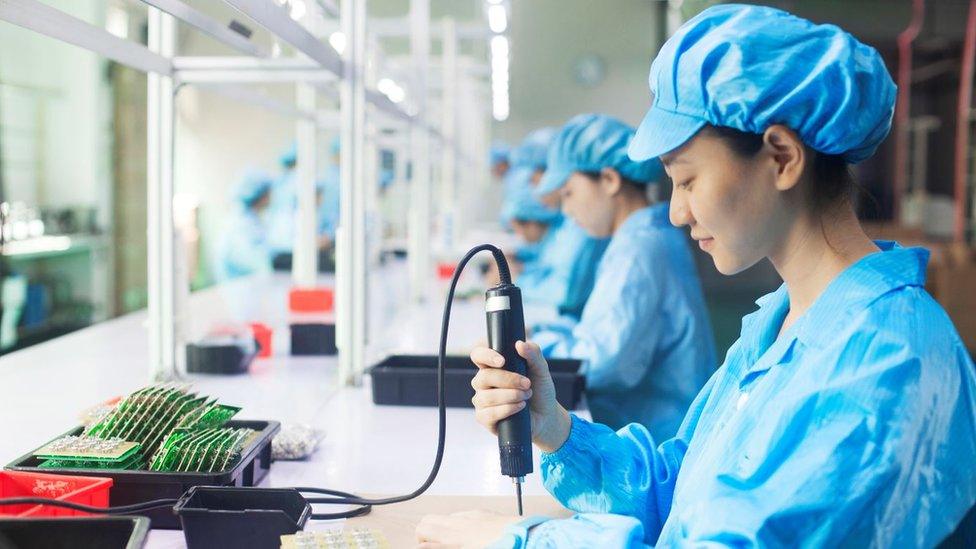
China's economic recovery was quick, according to official government figures
By any mark China is now back to the stability it enjoyed before the virus outbreak. Stable enough for its top leaders to meet in October and agree on its 14th five-year plan, a crucial piece of Communist Party socio-economic strategy. China is on course to be the only major economy in the world to grow in 2020.
For some of its people though there is significant uncertainty about the future. Pan is worried about how she and her friends will be treated if they go abroad.
Zhou has what she thinks may be the answer to that anxiety - feeling, maybe saying, sorry for what happened.